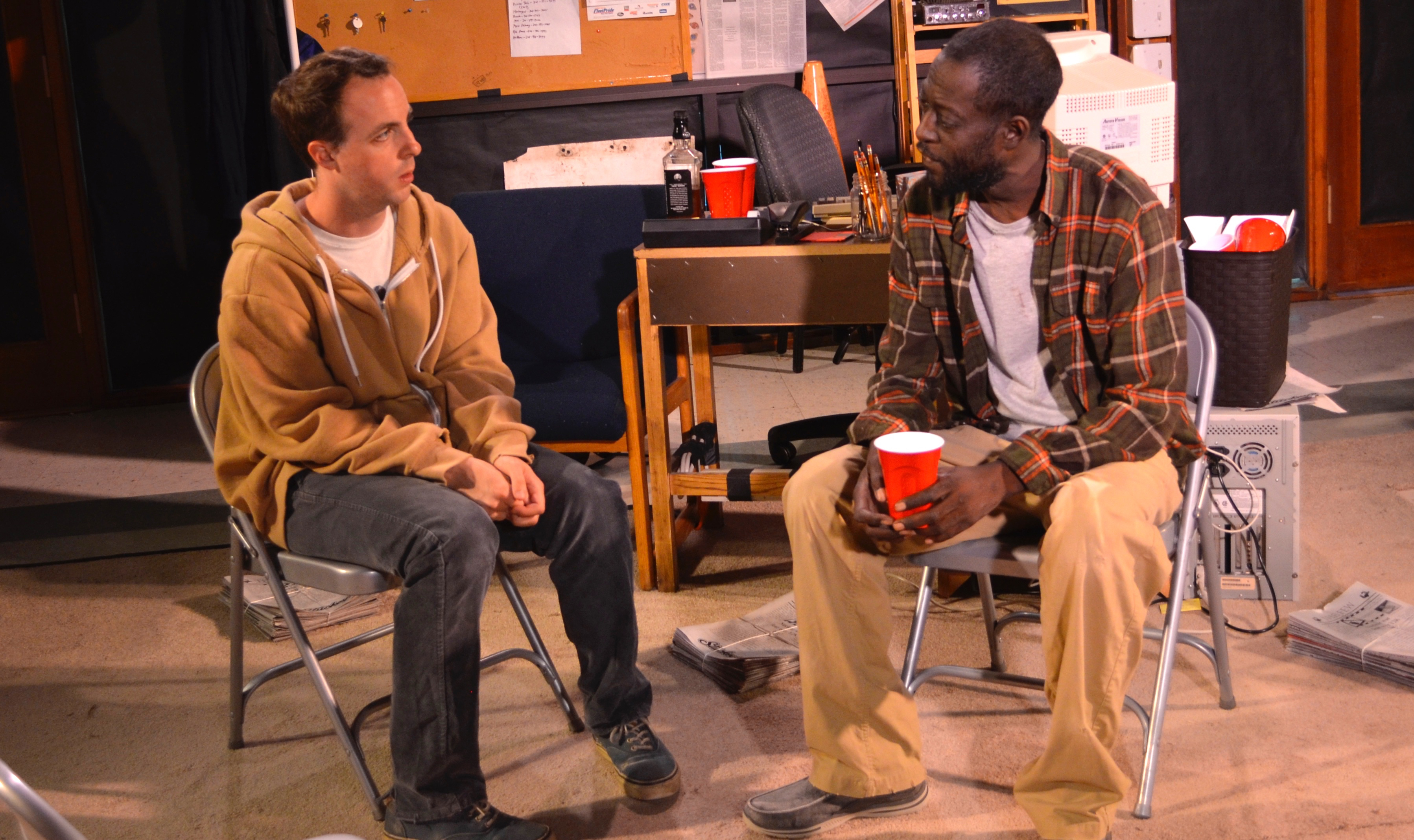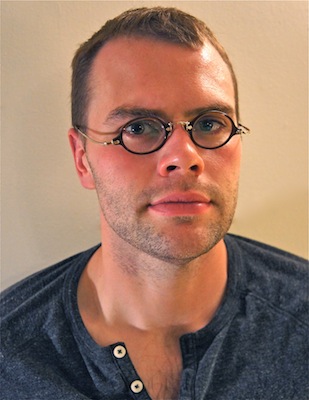


But I think in small town America there’s this pride that doesn’t allow people to accept the weirdness. Like, I think in New York people sort of accept the fact that there’s a lot of grunge and a lot of weirdness around. And they seem so at odds in a way with our normal concept of what it’s like to live in a small town. I think I just, I grew up hearing a lot of these stories and being completely fascinated by them. And I remember him telling me this story of a guy who came in, this homeless guy in this small town in Idaho, a quadriplegic whose spine was exposed because the bottom half of his body was rotting and there were maggots living in his body. And paper mills smell terrible, so the stench just sits in this valley - and it’s got a terrible drug problem and a terrible homelessness problem. And he works in an emergency room, he’s a physician in an emergency room in Lewiston, which is this town in a valley where there’s a big paper mill. He grew up ten miles away in this town called Troy that, when he was growing up, was mostly Swedish-speaking, and had a population of like 350 people, and he has incredible stories from that town. Something that feels a little different.Īnd my dad has stories of his hometown. And I’m not trying to say, you know, “Oh, there’s a kind of desperation and a loneliness that’s not in New York,” because people kill themselves in New York too, but there’s just something a little more… fringey or something. But there is something just in the margins (and maybe every small town feels this way) that, like - by the time I graduated high school I knew three kids who had killed themselves. Mame Hunter went to that university in 1908, or 1912 or something.

It’s a town of 20,000 people, a university town. Yet, when I think about the place where I grew up, it’s very normal, very nice. Not that I’m generally a depressed person, but I’ve never lived in a place where it’s like, “Aha! This fits me like a glove!” Like, “Everything about this place is exactly what it needs to be!” I always feel a little bit on the outside in some way. and I guess maybe that’s rooted in my own. There’s a sense of disconnect and isolation that I think a lot of the characters feel. I don’t think they feel at home spiritually. I don’t think they feel at home in their bodies. I don’t think a lot of the characters I write feel at home in any way. And I think the plays are kind of about that. I feel like both New York and Moscow have become homes to me, but simultaneously I don’t feel completely at home in either place. But in both places, in both Idaho and New York, I think I feel a sense of isolation. Like when I go back, I kind of settle into it in a certain way - In a similar way that I feel at home in New York. And, I guess, more than just “the place I grew up” it does still feel like home. They could be anywhere in America.īut the Idaho that I grew up in… I mean, I obviously pull from the place I grew up. Like, there are some references that, sure, are Idahoan, but I think the plays actually are trying to be sort of non-regional, in a way. I mean they’re obviously set in Idaho, but there’s nothing that’s really quintessentially Idahoan about most of the plays. I mean it bears less and less resemblance to the plays that I’m writing as I continue to write them. And I know you grew up in Idaho yourself - I believe in Moscow?Ĭan you talk a little bit about the Idaho you grew up in? Adam Greenfield: One of the first things one realizes about your plays when looking at them as a body of work is that they’re all set in Idaho or around Idaho.


 0 kommentar(er)
0 kommentar(er)
